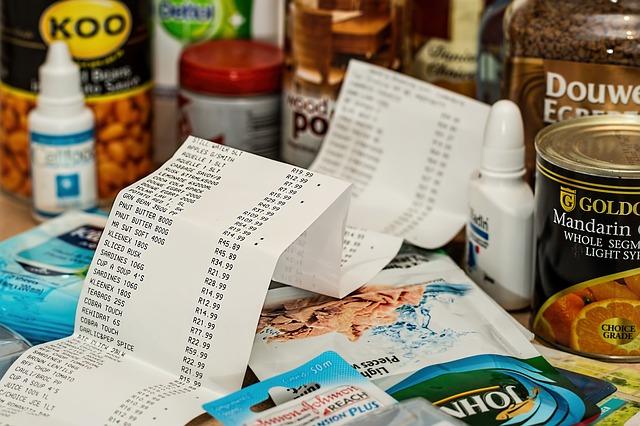|
By Becky The Finance Writer A woman draws water from a river using an earthenware jug. As she walks back home, she realizes in horror that the jug has a crack, and that water is continually seeping out from it. It is the only jug she owns, and she knows that soon there will be no longer any water left by the time she reaches home. She can also no longer draw water with that jug, either. That sense of hopelessness can be compared to being broke. With barely any source of income, and the daily grind of expenses weighing down on your pocket, one feels as if one can only go lower. The fear of the possibility of bankruptcy is not uncommon nowadays. Probably everyone has experienced being broke at one point in their lives. It may be as a kid, when you realize that your measly pennies are not enough to buy something from that ice cream truck, or as a student faced with payments from student loans to dorm fees to project expenses. But those situations are different. Now, with a job and the need to be financially independent, getting out of being broke is a more urgent matter. The truth about being broke does not lie solely on unemployment. When you mention bankruptcy, one imagines losing out on a business or being unemployed. But the concept of being broke is not limited to just that. Of course, there is the fact that being unemployed or having an unstable job with little benefits contributes to a lack of daily income. It also means that you are unable to bring extra cash home. When you are broke, you barely have enough to balance for your daily necessities and payments, and extra disposable income is rarely attainable. This also means that one is unable to maintain a savings account or an emergency fund. If most of your income immediately goes to expenses, then exactly how much are you able to allocate for the future? Between all the spending and the unexpected events where one is obligated to put out some cash, how can you keep up a savings plan? When there is just not enough money to save up, you are also risking yourself being vulnerable to financial emergencies. Additionally, being broke means that you’re not making any preparations for your inevitable retirement, either. Not having enough cash also implies missing out on the simple joys in life. Craving a muffin from your favorite bakery? You’ll have to pass. What about that gym membership you always hoped to have to work on your body goals? You’ll have to exercise at home for now. Then there’s all the birthdays, weddings and reunions you’ll have to miss out on because you know you’d have to drive or take a cab to get there, and that costs money. Not to mention you’d have to get the birthday girl a gift, too. Another downside to being broke is that you don’t have enough to make any extra investments. That keeps you from earning more money, which makes the situation worse. That extra income could have gone to buying some securities or shares, but since you have insufficient income to spend for that, that’s impossible too. The financial dead end, ironically, doesn’t end there. When the time comes that you are actually putting out more than you are earning, it also leads to credit problems. Debt adds a new layer to your financial owes. Bad credit standing will lead to you being unable to use credit cards during a bind, and the accumulating interest charges are sinking you further into debt. The thought of being broke is frightening. Luxuries and social status aside, it exposes a person to risks of being unable to respond to his/her basic needs. Personal finance may be a challenge when you are broke, but it doesn’t mean the end of the world. Figure out where your money is going. Seriously ask yourself the question – “Why am I broke in the first place?” There are numerous reasons why people are struggling to improve their financial situation. One notable reason is you have no idea where your money is going. From groceries to clothes to bills and fuel… the list goes on. Of course, these are unavoidable. They’re basic necessities. But exactly how much are you spending for each of those things? You may be surprised to see that more than half of your income is actually going places where you could have spent less. Another reason is not learning enough about personal finance. How much should I actually be spending based on what I earn? How much can be avoided, and what about the ones where I have no choice but to spend? Am I in debt? Do I have savings, retirement plans or an emergency fund? These basic questions may be the clue to solving the mystery to your downward journey to being broke.
There are also your investments. Say, you own a small apartment that you are renting out to some tenants. Check to see if you’re really earning from that. You may be surprised to find out that the amount you charge for rent is actually not enough to cover for the amount you spend to maintain that property. Investments are never a bad thing, as long as you’re actually making money from them. One of the most basic and important reasons for being broke, however, is one’s spending habits. Laws in economics state that the higher a person’s income goes, the more he/she tends to spend in relation to what he/she is earning. Finally secured a job? Good for you. You can finally move up from cheap groceries to eating out in the local restaurant. But what if proportionally, that moving up process is actually making you spend a lot more than you were unemployed? There are also cases when temptation makes us give in and we end up spending more than what we earn. It’s about time you do something about this situation. Nobody likes to stay broke. There are several solutions that will help you assess and respond to your financial crisis. The first thing to do when you are broke is to look for help. Inspire yourself to battle this problem, and look for dependable people who can help you through your situation. Determine what you can live without. That costly brand of cereal could easily be replaced by a cheaper alternative. Try making lunch instead of having to spend money eating out. Fancy that nice jacket in the store window? Take a second and think if you really need it right now. You’ll soon learn that tracking your expenses will help you pinpoint areas where you can reduce costs, making more allowances for savings and investments. You will also find that controlling your spending urges will help develop healthy consumer habits and will keep you from buying things you’ll end up regretting. When you are already in debt, don’t make it worse. Say no to temptations, control your urges and avoid compulsive spending. You’re not limiting your happiness, but it is wise to avoid immediate gratification as much as possible. There’s also no harm in looking for other sources of income. There are numerous ways to earn money. You can evaluate your skills to see if any of them has the potential to secure income. You can be an online tutor, or you could fix gadgets as a sideline. If you are a people person, you can land a part-time job involving customer assistance. By ensuring an extra flow of income, you are securing your financial position in case you suddenly lose your regular job. You are also adding to the stream of cash inflows that can help you relieve debt and get out of the red. Debt relief is a crucial point to staying out of bankruptcy. By ensuring that there are no additional charges (interests and principal payments) pulling down that income, you are setting yourself up in improving your financial health. Debt relief is a process where an individual is guided through a program specially created for his/her financial situation, in order to improve it and gradually but effectively reduce debt and potentially eliminating it for good. There are many institutions that offer debt relief programs, some of which are available online. By eliminating debt and improving your credit standing, you are adding more options to your personal finance plan. Being broke is unwelcome and unpleasant. It is also hard to get out of once you’re in a tight bind. But with discipline, a degree of awareness in personal finance and a little help, it is not impossible to overcome. References / More Information: http://time.com/money/4320973/why-you-are-poor/ https://haroldherring.com/blogs/harolds-blogs/richthoughts/587-7-things-to-do-when-you-re-broke http://www.curadebt.com/debt-relief-programs/
1 Comment
|
Heather on WealthI enjoy helping people think through their personal finances and blog about that here. Join my personal finance community at The Money Spot™. Categories
All
Archives
September 2023
|
Heather Katsonga-Woodward, a massive personal finance fanatic.
** All views expressed are my own and not those of any employer, past or present. ** Please get professional advice before re-arranging your personal finances.


 RSS Feed
RSS Feed


